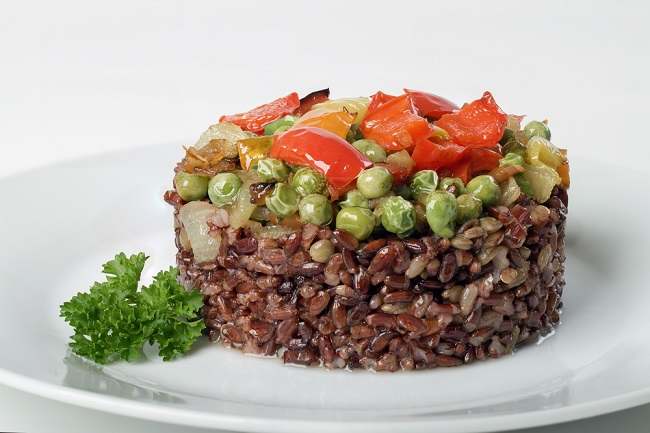Chili is often considered a cause of stomach pain. In fact, one of the benefits of chili is to maintain digestive tract health. However, to get the benefits of this one chili, you need to consume it in the right way.
Spicy food is certainly familiar with the tongue of the Indonesian people. One of the ingredients that make food spicy is chili (Capsicum annuum). Chili consists of various types with different colors, sizes, and levels of spiciness.

In Indonesia itself, chili which is still a family with paprika is generally consumed as fresh vegetables, processed into chili sauce, or dried into chili powder.
Behind the spicy taste, chili contains nutrients that are good for the body, such as protein, carbohydrates, fat, as well as various vitamins and minerals, such as vitamin A, vitamin B6, vitamin C, and potassium.
Not only that, chili also contains a variety of antioxidants, such as capsanthin, violaxanthin, lutein, synaptic acid, and ferulic acid.
Benefits of Chili for Health Digestion
Thanks to these ingredients, chili has a myriad of benefits for the health of the body, including the health of the digestive system. Well, here are some of the benefits:
1. Smooth digestion
The content of capsaicin, which is a substance that gives chili pepper a spicy taste, can stimulate the salivary glands to produce more saliva.
Thus, the food in the mouth can be broken down into smaller and softer pieces, so that the nutrients from the food can be more easily absorbed by the body.
2. Relieves intestinal inflammation
The capsaicin in chilies also has anti-inflammatory properties. This is evidenced by a study which states that capsaicin can trigger the production of a chemical called anandamide in the digestive tract.
Substance anandamide It is known to reduce inflammation in the intestines caused by inflammatory bowel diseases, such as ulcerative colitis and Crohn's disease. However, the benefits of chili to relieve inflammation still need to be studied further.
3. Increase the number of good bacteria in the intestine
Not only does it relieve inflammation, the capsaicin content in chilies is also believed to increase good bacteria that play a role in protecting the health of the digestive system from various types of diseases, such as constipation and intestinal inflammation.
However, the benefits of chili to increase the number of good bacteria in the intestines still require further study.
4. Prevent stomach ulcers
Eating foods containing chilies is often associated with stomach pain due to peptic ulcers. In fact, chili is not always the cause of gastric ulcers.
Capsaicin contained in chili is actually believed to inhibit the growth of bacteria H. pylori, namely bacteria that cause sores on the stomach wall.
In addition, capsaicin can also improve blood circulation and increase the production of mucus that protects the stomach wall from damage.
However, keep in mind that the benefits of this chili only apply to some people, especially those who have never had stomach ulcers.
If you have a history of ulcers on the stomach wall, you should avoid consuming chilies because capsaicin can actually worsen the condition of peptic ulcers and their symptoms, such as flatulence, heartburn, and constipation.heartburn.
Besides being good for digestion, chili also has other health benefits, such as lowering the risk of heart disease, losing weight, controlling blood pressure, and lowering cholesterol levels.
Tips for Consuming Chili Correctly
Although chilies offer many health benefits, you are still not advised to consume them in excess, because they can cause stomach pain, cramps, diarrhea, and heartburn.
When you want to process food with chili ingredients, you also need to be careful so that the seeds don't get in contact with the skin or eyes, because they can trigger irritation. So, to avoid this, there are some tips for processing chilies that you can do, namely:
- Use plastic gloves when handling or processing chilies.
- Avoid touching your eyes after handling or cutting chilies.
- Wash your hands with running water and soap until clean after processing or cooking with chilies.
In addition, to relieve the spicy taste in your mouth when eating foods that contain chilies, you can try drinking milk or other dairy products, such as yogurt and ice cream.
If you have questions about the benefits of chili or experience certain complaints after eating spicy foods, such as stomach pain, bloating, and diarrhea, don't hesitate to check with your doctor so that the right treatment can be done.









